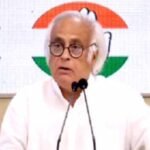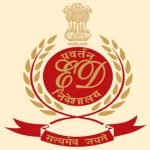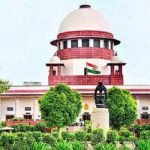New Delhi, Jan 17 (UNI) The Supreme Court on Thursday firmly stated that it will not grant further adjournments in the criminal appeals pending in the 2002 Godhra train burning case.
A bench comprising Justice J.K. Maheshwari and Justice Aravind Kumar expressed displeasure over repeated requests for adjournments in the matter and listed the appeals for final hearing as the first item on the cause list on February 13.
Justice Maheshwari remarked, “We have granted adjournment 5-6 times. For the past year, I have been adjourning the matter.”
At the outset, the appellants’ lawyers raised various issues, including pending remission applications of the convicted individuals before the State, arguing these should be resolved first.
Senior Advocate Sanjay Hegde, representing one of the appellants, argued that since the case involves appeals against convictions and the Gujarat government’s appeal for the death penalty, the matter should be heard by a three-judge bench as per the 2014 constitutional bench judgment in Mohd. Arif @ Ashfaq vs The Registrar, Supreme Court of India & Ors.
Hegde referred to the Supreme Court Rules, 2013, specifically Order VI Rule 3, which mandates that cases involving the confirmation or imposition of the death penalty must be heard by a bench of not less than three judges.
He contended that if the Court decides to grant the death penalty, the matter would need to be referred to a three-judge bench.
The bench, however, clarified that the first step in such cases is to confirm the conviction, which can be done by a two-judge bench.
The issue of sentencing, including the death penalty, will be addressed in the second stage, the court held.“The facts and circumstances of each case are different, and an individualized approach is required,” the Court noted.
On the issue of remission, the Court categorically stated that it is a matter for the State to decide and is unrelated to the criminal appeals before the Court. Justice Maheshwari added that the Chief Justice’s office had instructed that remission cases and criminal appeals need not be connected or heard together.Visibly upset by repeated adjournment requests, Justice Maheshwari emphasized that arguments must commence on the next hearing date.
“This matter needs to be heard in my tenure,” he stated firmly.
The bench also directed the parties to translate and digitize court records, originally in Gujarati, to ensure accessibility to all parties.
The Godhra train burning incident occurred on February 27, 2002, when the S-6 coach of the Sabarmati Express, carrying kar sevaks (Hindu volunteers) from Ayodhya, was set on fire, resulting in the deaths of 58 people.
The incident triggered widespread communal riots across Gujarat.In March 2011, a trial court convicted 31 individuals—11 were sentenced to death, and 20 were given life imprisonment. Another 63 accused were acquitted. In 2017, the Gujarat High Court commuted the death sentences to life imprisonment and upheld the sentences for the other 20 convicts.
The Supreme Court has granted interim relief to some of the convicts in recent years. For instance, on May 13, 2022, the Court granted interim bail to Abdul Raheman Dhantiya, citing his wife’s terminal cancer and the mental health issues of his daughters. His bail was extended on November 11, 2022, until March 31, 2023.
Similarly, in December 2022, the Court granted bail to Farook, a convict sentenced to life imprisonment, based on his role in stone-pelting and the fact that he had already served 17 years in prison. In April 2023, eight more life convicts were granted bail.
However, in August 2023, the Supreme Court denied bail to several convicts, including Saukat Yusuf Ismail Mohan and others, citing the specific roles attributed to them in the carnage.
With the final hearing now scheduled, the Supreme Court aims to resolve the long-pending appeals and address the questions of conviction and sentencing comprehensively.









